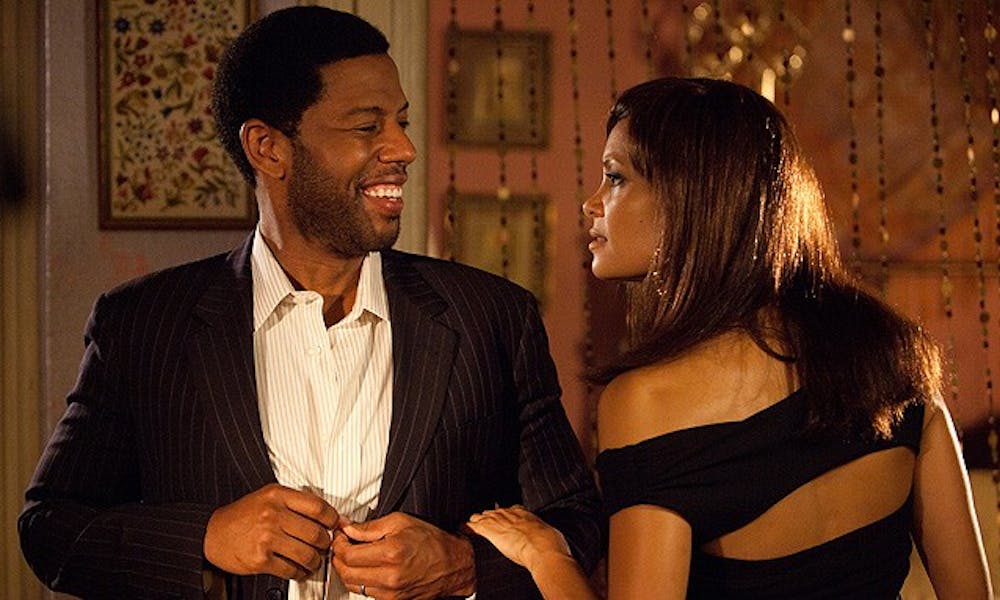For Colored Girls should not be taken lightly. Tyler Perry does it again: His newest film perpetuates yet another negative stereotype of African-American women and their unfortunate romantic relationships.
Based on playwright Ntozake Shange’s For Colored Girls Who Have Considered Suicide When the Rainbow is Enuf, Perry’s adaptation features an all-star black cast, poetic dialogue and powerful acting. Nevertheless, an overly dramatic plot and stints of black rage from each character makes For Colored Girls Perry’s latest addition to his arsenal.
Unlike his other films, Perry incorporates poetry into the plot. The actors deliver Shange’s poetry with eloquence and strength. Perry’s incorporation of poetry comes at inappropriate times, fitting free verse during critical scenes; dense lines confuse the story and interrupt the flow of the movie. The use of molasses-like poetry doesn’t excuse Perry’s recycled actresses and the characters they portray. Although each actress brings personality and power to her respected character, Perry casts women who cater to his signature plot of female suffering and rage. Janet Jackson plays virtually the same type-A executive as in Why Did I Get Married? Kimberly Elise portrays the same battered product of an abusive relationship as in Diary of a Mad Black Woman. In fact, the entire plot line is a retread of motifs from previous Tyler Perry Company films.
This movie over-exaggerates the interactions between African-Americans and the general American public. The film even seems to parody Precious with its dank Harlem backdrop and melodramatic ending. For Colored Girls isn’t the movie one would want to see for a fairy-tale ending. It isn’t even a movie worth seeing for its “keepin’ it real” affectation. For Colored Girls fails to empower hurt women—it sickens them.
Get The Chronicle straight to your inbox
Signup for our weekly newsletter. Cancel at any time.

